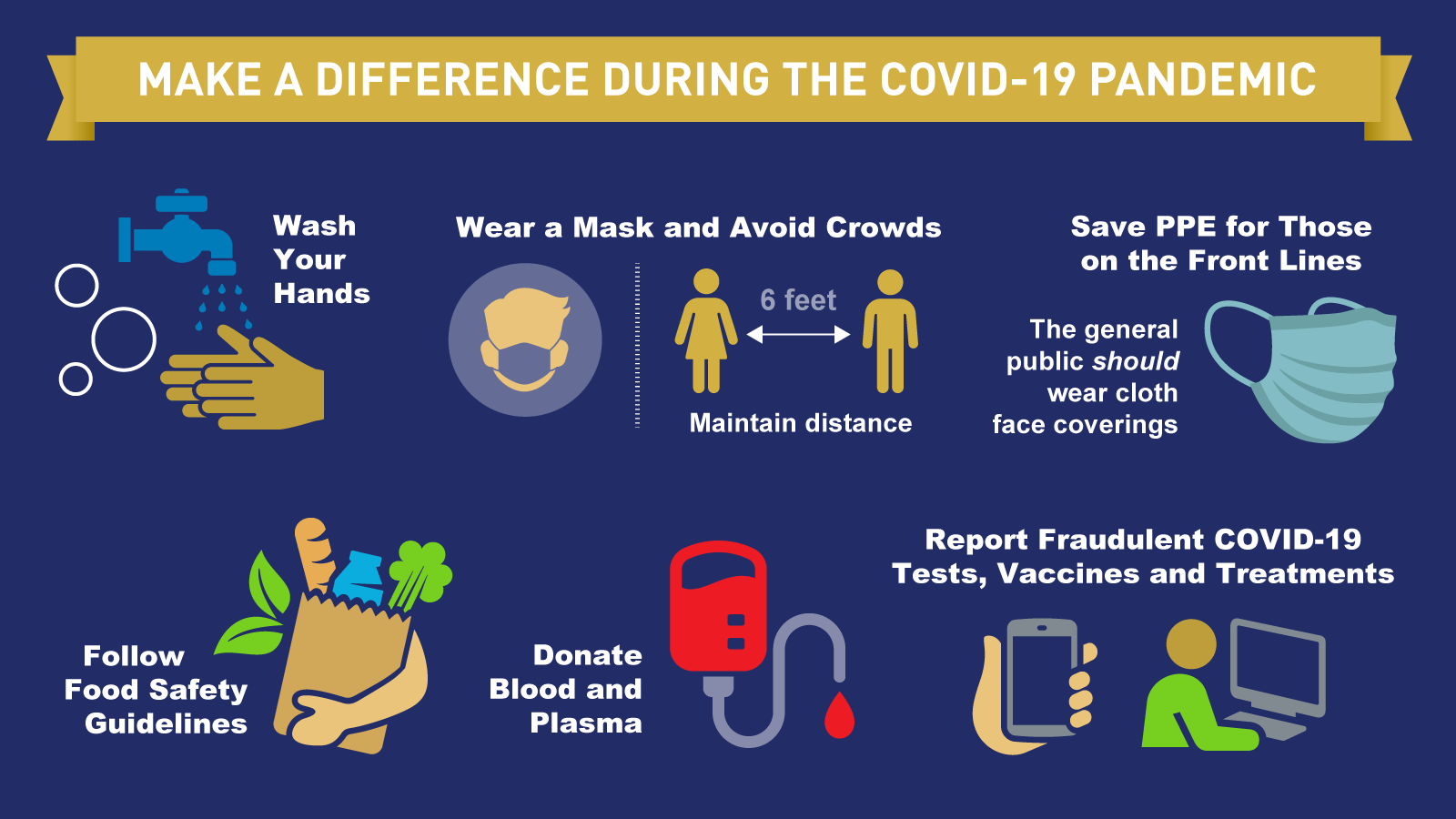WHAT IS COVID-19?
COVID-19 is a contagious illness that is caused by a novel strain of the coronavirus. COVID-19 has affected millions of individuals globally, all in different ways.While the vast majority of infected individuals will develop mild to moderate symptoms for the duration of their illness, some will experience more severe and fatal symptoms. COVID-19 can infect any individual and so everyone is at risk. However, older individuals and individuals who are immunocompromised or have serious medical conditions may be at a higher risk for more severe symptoms of the illness.

HOW IS COVID-19 SPREAD?
COVID-19 is primarily spread by the direct contact of an infected individual through respiratory droplets produced when they talk, cough or sneeze. The infection is caused when respiratory droplets are inhaled or land on mucous membranes in the mouth or nose. Sometimes, these respiratory droplets can stay airborne from minutes to even hours. Thus, airborne transmission is one way that an individual can contract the virus. You can also be infected with the virus by touching a surface or object that has the virus on it, and then touching your mouth, nose or eyes without washing your hands.
HOW TO PREVENT THE SPREAD OF COVID-19
At this time, vaccines have been developed and are on the way to be accessible to civilians in Canada by this year. While civilians wait to get vaccinated, individuals must take safety precautions to protect themselves against COVID-19. Throughout the pandemic, individuals have been reminded to practice safe social distancing. It is recommended that individuals stay home and avoid direct contact with individuals outside of their household. Recommendations include buying essential items online and limiting in-person contact when possible. In Ontario, restrictions have been placed on the province, stating that individuals must remain at home unless it is for essential travelling. Should they have to leave and enter public places, individuals must wear an effective mask that covers the nose and mouth. Individuals should also effectively wash their hands with soap and water for at least 20 seconds, as stated by the CDC, or use an alcohol-based hand sanitizer that contains at least 60% alcohol.

WHAT DOES COVID-19 DO TO THE BODY?
COVID-19 can affect individuals differently. The human body’s immune response to the virus is critical when observing the coronavirus. The organs in a human body are lined with billions of epithelial cells, which are cells of your body that aid in protecting your body, especially from viruses. As with any virus, coronavirus particles will attach to receptors on your healthy cells, more specifically known as ACE2 receptors; This receptor allows the virus particles to infect the cell. It is important to note that ACE2 receptors are more common in your respiratory areas such as the mouth, nose and lungs. The “infected” cells will spread throughout the human body through a series of copying and multiplying: by the second week of infection, millions of body cells in the body will be infected. The immune system will attempt to protect the human body from the virus, but it will be proven useless when compared to the coronavirus particles. In most cases, the immune system will gradually regain control by killing the infected cells. Symptoms of COVID-19 include fatigue, coughs, body aches, sore throat and/or a headache. Fever is also present in infected individuals as a result of their response to the virus. Severe symptoms include pneumonia, which is the inflammation of the lungs. Pneumonia becomes probable in an individual when their lungs become inflamed or the alveoli, which are tiny air sacs in the lungs, are exposed to bacterial infections. Such inflammation can stop the human body from receiving enough oxygen, which can eventually lead to the failure of many organs. Infection can also become fatal when the organs in the body start failing as a result of the immune response creating more damage to the body than good.
